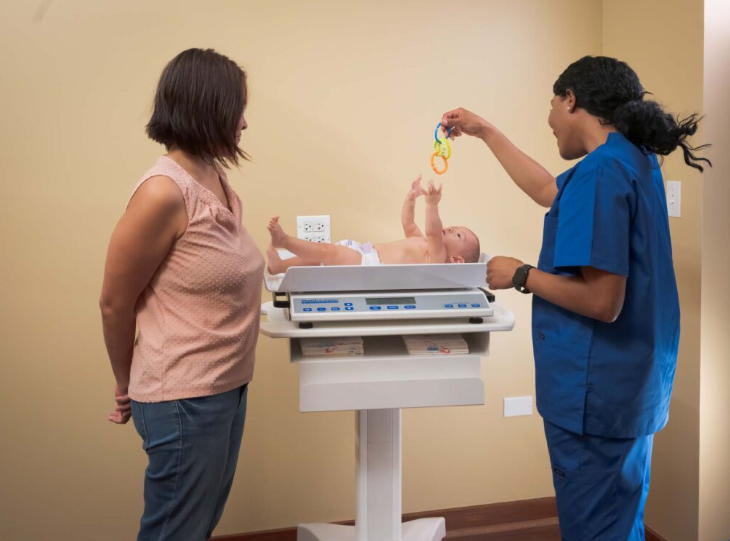Everything You Should Know About Lie Detector Tests and Polygraph Exams in New Jersey
Introduction
For many people, the idea of a machine that can detect lies seems like something out of a science fiction movie. Yet, polygraph exams—commonly called lie detector tests—have been in use for decades and continue to play a role in law enforcement, employment screenings, and personal disputes. A lie detector test in New Jersey is not as rare as one might think. From police investigations to private family matters, polygraph tests are requested regularly. But how do these tests work? How accurate are they? And what role do they really play in New Jersey’s legal and personal landscape? This article explores everything you should know about lie detector tests and polygraph exams in the Garden State.
What Is a Lie Detector Test?
A lie detector test, or polygraph test, is a scientific method designed to measure physiological responses when a person answers questions. The theory behind it is simple: when people lie, their bodies react in ways they cannot fully control. These changes may include increased heart rate, rapid breathing, higher blood pressure, or subtle sweating.
Polygraph machines record these reactions using sensors placed on the subject’s body. The data appears as lines on a graph, and a trained examiner interprets the patterns to determine whether the subject is being truthful or deceptive. Although polygraphs cannot read minds, they aim to detect the stress associated with dishonesty.
How Do Polygraph Tests Work?
The process of taking a lie detector test usually follows a set procedure. It begins with a pre-test interview, during which the examiner explains the process, reviews the questions, and establishes baseline readings. This step is important because it ensures the subject is comfortable and understands what will happen.
During the actual test, the subject is connected to sensors that measure breathing, heart activity, and perspiration. The examiner then asks three types of questions:
- Neutral questions: Simple factual questions, such as “Is your name John?”
- Control questions: Broad questions designed to create mild anxiety.
- Relevant questions: Directly related to the case or dispute at hand.
By comparing the body’s responses across these different question types, examiners can identify potential signs of deception. Afterward, the examiner analyzes the results and provides a written report.
See also: How Augmented Reality Is Revolutionizing the Retail Experience
A Brief History of Lie Detector Tests in New Jersey
Polygraph technology was first introduced in the early 20th century, and by the mid-1900s it became a tool frequently used by law enforcement. In New Jersey, police departments and investigative agencies adopted lie detector tests to help eliminate suspects and verify witness statements.
Over time, the use of polygraph tests spread beyond law enforcement. Employers began using them for hiring decisions, and individuals requested them for personal disputes such as infidelity or theft. Today, polygraph exams are still used in New Jersey, but their legal and scientific credibility remains a matter of debate.
Are Lie Detector Tests Accurate?
Accuracy is the most debated issue surrounding polygraph tests. Supporters claim that when performed by a skilled examiner, polygraph exams can achieve accuracy rates of 80–90%. Critics argue that results are influenced by factors like anxiety, medical conditions, or even intentional efforts to manipulate the test.
In New Jersey, courts generally do not accept lie detector results as evidence. Instead, they may be used as supporting material in investigations or as part of voluntary agreements between parties. While polygraphs can provide useful insights, they should not be viewed as infallible proof of truth or deception.
Legal Considerations in New Jersey
The legal status of lie detector tests in New Jersey depends on context. For criminal cases, results are typically inadmissible in court because they do not meet the strict standards of scientific reliability required for evidence. However, investigators still use them as tools to guide their work.
In employment, New Jersey follows the Employee Polygraph Protection Act (EPPA), which limits the use of polygraph testing by private employers. Most employers cannot require lie detector tests as a condition of employment, though exceptions exist for government agencies, law enforcement, and security-related jobs.
In civil and personal matters, lie detector tests are voluntary. If both parties agree, they may use polygraph results to settle disputes, though the results do not carry legal weight.
Cost of Polygraph Tests in New Jersey
The price of a lie detector test in New Jersey varies depending on the examiner and the type of case. On average, you can expect to pay between $300 and $700 for a standard session. More complex cases—such as those requiring multiple subjects or extended reports—may cost more. For many people, the expense is worth it when important legal, professional, or personal issues are at stake.
Choosing the Right Examiner
When considering a polygraph test, it is essential to choose a qualified examiner. Many professional examiners in New Jersey are certified by organizations such as the American Polygraph Association. A reliable examiner will have proper training, follow ethical standards, and provide clear explanations of the process.
Before scheduling a test, ask about the examiner’s credentials, experience, and approach. Transparency is a good sign that the examiner is professional and trustworthy.
Benefits and Drawbacks of Polygraph Testing
Polygraph exams come with both advantages and disadvantages, and anyone considering a lie detector test in New Jersey should be aware of both.
Benefits:
- Provides clarity in emotionally charged situations.
- Helps guide investigations and legal strategies.
- Can restore trust in personal or workplace conflicts.
By weighing these pros and cons, individuals can decide whether a lie detector test is the right choice for their situation.
The Future of Lie Detection Technology
While the polygraph test is the most well-known lie detection method today, research is advancing in other areas. New technologies, such as brain imaging and artificial intelligence, may eventually provide more reliable alternatives. In New Jersey, as elsewhere, these emerging tools may reshape how courts, employers, and individuals approach the search for truth.
- Location in New Jersey
- Fort Lee – 1 Bridge Plaza North, N Central Rd, 6th Floor, Fort Lee, NJ 07024
- Piscataway – 30 Knightsbridge Rd, #525, Piscataway, NJ 08854
- Basking Ridge – 233 Mt Airy Rd, 1st Floor, Basking Ridge, NJ 07920
- Parsippany – 1719 NJ-10, #300, Parsippany, NJ 07054
- Princeton – 103 Carnegie Center Dr, Princeton, NJ 08540
- Hampton – 53 Frontage Rd, 1st Floor, Hampton, NJ 08827
- Bedminster – 1 Crossroads Dr, Bedminster, NJ 07921
- Iselin – 33 Wood Ave, Iselin, NJ 08830
- Short Hills – 51 John F. Kennedy Parkway, Short Hills, First Floor West, Millburn, NJ 07078
- Edison – 110 Fieldcrest Ave 3rd Floor, Edison, NJ 08837
- Mahwah – 1000 Wyckoff Ave 3rd Floor, Mahwah, NJ 07430
- Hoboken – 221 River St 9th Floor, Hoboken, NJ 07030
- Jersey City – 2500 Plaza 5, Jersey City, NJ 07311
- Cherry Hill – 923 Haddonfield Rd, Cherry Hill, NJ 08002
- Tinton Falls – 3600 Route 66, Shore Crossings, Tinton Falls, NJ 07753
- Mt. Laurel – 309 Fellowship Rd, 2nd Floor, Mt. Laurel, NJ 08054
- Lawrence Township – 2564 US-1, Lawrence Township, NJ 08648
- Freehold – 4400 Route 9 S, Suite 1000, Freehold, NJ 07728
Conclusion: Should You Take a Lie Detector Test in New Jersey?
Deciding whether to take a lie detector test in New Jersey depends on your circumstances. For criminal or civil cases, polygraph results may help provide clarity but are unlikely to carry legal weight. In personal matters, they can serve as a tool for resolving disputes or rebuilding trust, though the results should always be interpreted carefully.
Ultimately, polygraph tests are not perfect, but they can still be valuable when used appropriately. By understanding their process, limitations, and legal context in New Jersey, you can make an informed decision about whether a lie detector test is the right choice for you.




